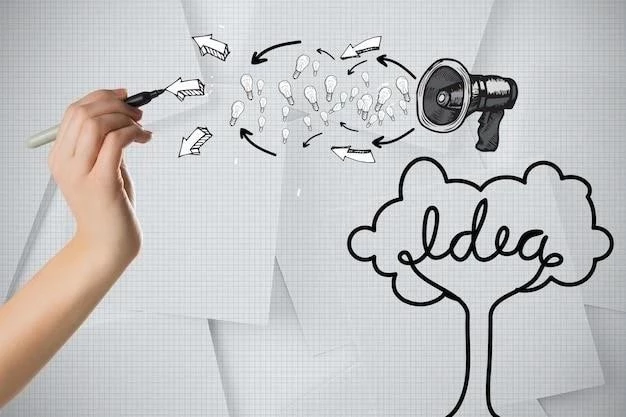
The phrase “Les hommes ne pleurent pas” (“Men don’t cry”) is a deeply ingrained cultural trope that reverberates across generations in France and beyond. It encapsulates a societal expectation that men must suppress their emotions, particularly vulnerability and sadness, in order to conform to a rigid definition of masculinity. This article delves into the historical and cultural context of this phrase, exploring its impact on men’s mental health, the evolving landscape of masculinity, and the role of art and media in challenging these deeply rooted social norms.
The Historical Roots of “Les Hommes Ne Pleurent Pas”
The notion that men should not cry is not a modern invention. It has roots in historical and cultural contexts that have shaped societal expectations of masculinity. Throughout history, men were often seen as the protectors and providers, tasked with physical strength and emotional stoicism. This ideal was reinforced by traditional gender roles, where men were expected to be assertive, dominant, and emotionally detached. The concept of “manliness” was often tied to physical prowess and the ability to suppress emotions, particularly vulnerability and sadness.
In France, this historical context is further interwoven with the legacy of the Napoleonic era, which emphasized military strength and national pride. The ideal of the “French soldier,” stoic and resolute in the face of adversity, contributed to the romanticization of emotional suppression as a sign of strength and patriotism.
The Impact on Men’s Mental Health
The pervasive belief that “Les hommes ne pleurent pas” has significant consequences for men’s mental health. The suppression of emotions, particularly negative ones, can lead to a range of psychological issues, including⁚
- Anxiety and depression⁚ Bottling up emotions can lead to increased stress and anxiety, making it difficult to cope with life’s challenges.
- Substance abuse⁚ Men may turn to alcohol or drugs as a way to numb their emotions and avoid confronting their feelings.
- Relationship difficulties⁚ The inability to express emotions can strain relationships, making it difficult to communicate effectively and build intimacy.
- Increased risk of suicide⁚ Men are statistically more likely to commit suicide than women, and this is often attributed to the societal pressure to suppress emotions and seek help.
The pressure to conform to this rigid definition of masculinity can create a sense of isolation and shame for men who struggle with their emotions. It can also make it difficult for them to seek help when they need it, further exacerbating their mental health challenges.
The Rise of Toxic Masculinity
The concept of “toxic masculinity” has emerged in recent decades to describe the harmful consequences of adhering to traditional, rigid notions of masculinity. Toxic masculinity is characterized by aggression, dominance, and the suppression of emotions. It can manifest in behaviors such as violence, misogyny, and homophobia.
While the phrase “Les hommes ne pleurent pas” does not inherently equate to toxic masculinity, it is a symptom of the broader cultural context that reinforces these harmful behaviors. The pressure to conform to this narrow definition of masculinity can lead men to engage in risky behaviors and perpetuate harmful stereotypes.
Challenging the Norm⁚ A Shift in Attitudes
In recent years, there has been a growing movement to challenge the traditional norms of masculinity and encourage men to embrace their emotions. This shift is evident in various areas, including⁚
- Increased awareness of mental health⁚ There is a growing awareness of the importance of men’s mental health, with more resources and support services becoming available.
- Representation in media⁚ Films, television shows, and other forms of media are increasingly portraying men who are emotionally vulnerable and complex, challenging the stereotype of the stoic, emotionless man.
- Social media activism⁚ Social media platforms have become a space for men to share their experiences and challenge traditional norms, creating a sense of community and support.
These developments are encouraging, but it is important to recognize that change is slow and multifaceted. Challenging deeply ingrained cultural norms requires a sustained effort from individuals, institutions, and society as a whole.
The Role of Art and Media in France
French cinema has played a significant role in shaping and reflecting societal attitudes towards masculinity. While traditional films often reinforced the stereotype of the stoic, emotionless man, a growing number of films are challenging these norms and exploring the complexities of male emotions.
For instance, the film “Intouchables” (2011) portrays a complex and nuanced relationship between two men from vastly different backgrounds. The film challenges the stereotype of the “tough guy” by showing the emotional vulnerability of both characters. Similarly, the film “The Intouchables” (2011) explores the themes of friendship, acceptance, and the importance of emotional connection.
Beyond cinema, French art and literature have also contributed to the evolving discourse on masculinity. Writers such as Albert Camus and Jean-Paul Sartre explored themes of existentialism and the human condition, which often challenged traditional notions of masculinity and societal expectations.
Conclusion⁚ Embracing Vulnerability and Challenging the Status Quo
The phrase “Les hommes ne pleurent pas” is a powerful reminder of the deeply ingrained cultural norms that shape our understanding of masculinity. While it is important to acknowledge the historical context and societal pressures that have contributed to this belief, it is equally crucial to challenge these norms and embrace a more nuanced and inclusive definition of masculinity.
Encouraging men to express their emotions, particularly vulnerability and sadness, is not a sign of weakness but a sign of strength and emotional intelligence. By challenging the status quo, we can create a more supportive and inclusive society for men, allowing them to thrive both emotionally and mentally. The path towards a more equitable and compassionate society requires a collective effort to dismantle the harmful stereotypes that perpetuate the notion that “Les hommes ne pleurent pas.”
This article explored the complexities of masculinity and emotional expression in French culture, highlighting the impact of the phrase “Les hommes ne pleurent pas” on men’s mental health and the ongoing efforts to challenge these deeply rooted social norms. By embracing vulnerability and challenging the status quo, we can create a more supportive and inclusive society for all.




L’analyse de l’article est solide et bien argumentée. Il met en évidence l’impact profond de la phrase “Les hommes ne pleurent pas” sur la santé mentale des hommes. L’auteur propose des pistes de réflexion pour une évolution des mentalités et une promotion d’une masculinité plus saine et plus authentique.
L’article aborde un sujet crucial et souvent négligé. La phrase “Les hommes ne pleurent pas” est un véritable obstacle à la santé mentale masculine. L’auteur propose une analyse éclairante de l’impact de cette norme sur la société et la nécessité de promouvoir une masculinité plus authentique et émotionnellement saine.
Un article important et nécessaire qui met en lumière les conséquences négatives de la pression sociale sur les hommes pour qu’ils répriment leurs émotions. L’auteur souligne la nécessité de repenser les conceptions de la masculinité et de promouvoir une plus grande liberté d’expression émotionnelle chez les hommes.
J’ai trouvé cet article très pertinent et bien écrit. Il explore de manière approfondie les origines historiques et culturelles de la phrase “Les hommes ne pleurent pas” et son impact sur la santé mentale des hommes. L’auteur met en avant l’importance de déconstruire ces normes sociales et de promouvoir une masculinité plus ouverte et émotionnellement accessible.
Une réflexion importante et bien documentée sur la pression sociale qui pèse sur les hommes pour qu’ils répriment leurs émotions. L’article met en évidence les conséquences néfastes de cette norme sur la santé mentale masculine et appelle à une évolution des mentalités.
Cet article offre une analyse approfondie et nuancée de la phrase “Les hommes ne pleurent pas”, explorant ses racines historiques et son impact sur la santé mentale des hommes. L’auteur met en lumière l’évolution des conceptions de la masculinité et la nécessité de déconstruire les normes sociales qui limitent l’expression émotionnelle des hommes.
Cet article aborde un sujet important et complexe avec une grande clarté et une profondeur d’analyse. L’auteur met en évidence les conséquences néfastes de la pression sociale sur les hommes pour qu’ils répriment leurs émotions et appelle à une évolution des mentalités pour une masculinité plus saine et plus inclusive.
Un article pertinent et éclairant qui explore les origines historiques et culturelles de la phrase “Les hommes ne pleurent pas” et son impact sur la société. L’auteur propose une analyse approfondie et nuancée de ce phénomène et invite à une réflexion sur la nécessité de repenser les conceptions de la masculinité.